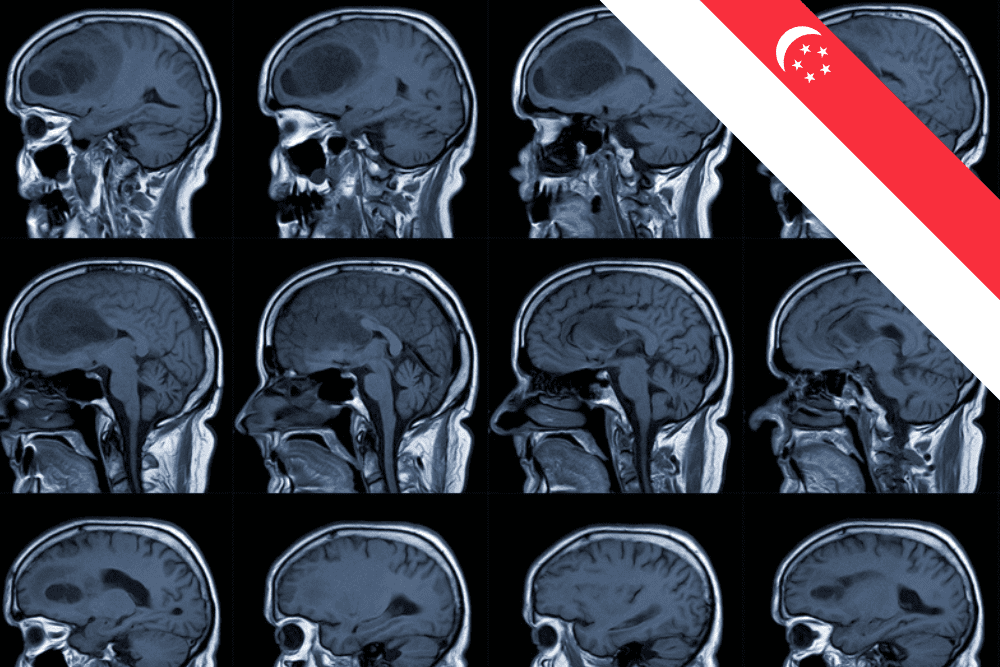Innovative Gene Therapy for Glioblastoma by NUS Medicine
National University of Singapore’s Yong Loo Lin School of Medicine (NUS Medicine) is set to trial a new gene therapy for glioblastoma in 2025. This gene therapy, promises hope for glioblastoma patients who typically have only two years to live post-diagnosis.
What is Glioblastoma?
Glioblastoma, also known as glioblastoma multiforme (GBM), is the most aggressive type of primary brain tumour. Originating from the glial cells in the brain, glioblastoma rapidly infiltrates surrounding brain tissue, making it exceptionally difficult to treat.
This malignancy is characterised by its heterogeneous nature, with various genetic mutations and molecular subtypes contributing to its complexity. Symptoms often include severe headaches, seizures, cognitive impairment, and neurological deficits, depending on the tumour’s location.
Standard treatment typically involves surgical resection, followed by radiation therapy and chemotherapy. However, despite aggressive treatment, the prognosis remains poor, with a median survival rate of around 12 to 18 months. The high recurrence rate and resistance to conventional therapies underscore the urgent need for innovative treatment approaches.
Groundbreaking Approach to Treat Aggressive Glioblastoma
This new therapy utilises human stem cells genetically modified to carry cancer-killing genes. These modified stem cells have a unique ability to home in on tumours, directly targeting the cancerous cells. Once at the tumour site, the stem cells release a chemotherapy drug called fluorouracil (5FU), effectively attacking the cancer while minimising damage to surrounding healthy tissues.
This approach not only targets and kills the aggressive tumour cells but also activates the body’s immune system. By engineering the stem cells to produce interferon beta, a substance that stimulates immune responses, the therapy aims to provide long-term suppression of tumour growth. This dual-action strategy represents a significant advancement over traditional treatments, which often fail to prevent tumour recurrence.
The clinical trial at the National University Hospital (NUH) is scheduled to begin in late 2025. It will be the first human trial following successful veterinary applications, where similar treatments have extended the lives and improved the quality of life for many pets with terminal cancers.
Success in Veterinary Applications
The initial version of this treatment was successfully tested on 65 dogs and cats between 2018 and 2022. The therapy involved injecting modified stem cells into the animals, followed by oral administration of off-the-shelf antifungal drugs.
Researchers developed a technique to insert large quantities of yeast-based genes into the stem cells, enabling them to produce the chemotherapy drug fluorouracil (5FU). These modified stem cells release 5FU around the tumour, targeting and killing cancer cells.
This targeted delivery of 5FU minimises the severe side effects typically associated with chemotherapy, such as diarrhoea, bleeding gums, and increased infection risk. Instead, the side effects observed in treated animals were mild. Fifty-six of the 65 treated pets experienced prolonged survival and improved quality of life, demonstrating the treatment’s potential efficacy.
Enhancing the Therapy with Immune Activation
The enhanced version of the therapy includes an additional component to boost the recipient’s immune response. The researchers engineered the stem cells to produce interferon beta, a substance the body naturally produces to activate the immune system.
Interferon beta stimulates immune cells to attack the tumour, providing long-term suppression of tumour growth. This dual approach addresses the need to not only kill the cancer cells but also activate the immune system, preventing tumour recurrence and offering a more sustained response.
Preparing for Human Clinical Trials
The NUS Medicine team has conducted pre-clinical studies on mice with brain cancer to prepare for human trials. These studies demonstrated promising results, with brain tumours in some mice disappearing a week after receiving the therapy. Building on this success, the team is conducting further pre-clinical studies and preparing a dossier for submission to the Health Sciences Authority.
Clinical Trial Plans
The first phase of the clinical trial at NUH will test the safety of the treatment on six to fifteen patients with recurrent glioblastoma. These patients will undergo a second brain operation to remove as much of the tumour as possible. Following the surgery, three millilitres of modified stem cells will be injected around the tumour cavity through 20 injections to ensure maximum exposure to cancer-killing cells. Patients will also take antifungal drugs orally to support the treatment.
The research team hopes that this innovative gene therapy can significantly extend the lives of glioblastoma patients. While curing glioblastoma remains a challenging goal, converting it into a manageable chronic disease could allow patients to live significantly longer than the current prognosis of 18 to 24 months. The ultimate aim is to provide a treatment that not only prolongs life but also improves its quality, turning glioblastoma from a fatal diagnosis into a controllable condition.
The first phase of the clinical trial will pave the way for further research and potential broader applications. If successful, this gene therapy could represent a major breakthrough in the fight against glioblastoma and potentially other aggressive cancers.
As the research progresses, it brings us closer to a future where glioblastoma is not a death sentence, but a treatable condition.
References
- Begum, S. (2024, July 8). NUS Medicine team aims to start clinical trial of targeted therapy for deadly brain cancer in 2025. The Straits Times. https://www.straitstimes.com/singapore/nus-medicine-team-aims-to-start-clinical-trial-of-targeted-therapy-for-deadly-brain-cancer-in-2025#:~:text=The%20scientists%20behind%20the%20stem,about%20two%20years%20to%20live.

